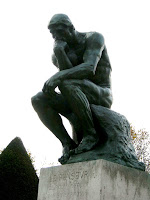The hymns of the Christian Church have been a significant part of my life—from childhood to the present. Many of those hymns I know by heart. Sometimes a certain hymn pops into my mind as the following did this morning:
“I ask no dream, no prophet ecstasies,
no sudden rending of the veil of clay,
no angel visitant, no opening skies;
but take the dimness of my soul away.”
That happens to be the second verse of the hymn, “Spirit of God, Descend Upon My Heart.” The words were written by George Croly in 1867—and here I am pondering those 153-year-old words in the year 2020.
Would it help if I could see the way ahead? If I could know what is in store tomorrow? Would that I could dream a dream which would answer the questions that haunt me? How wonderful it would be, if like the Apostle, I could have a Damascus Road experience, or hear as clearly as Amos or Isaiah what truth is—a kind of “prophet ecstasy”. If only the “veil” of “not knowing” were lifted. To be visited by an angel, as Mary was, would certainly ease my mind and give me a hint of what to expect as the journey continues. If only the sky would open and give me the “light” by which to see and to know what lies ahead.
We all seek for the dream, a prophet’s ecstasy, the lifting of the veil, an angel visitant, or an opening sky. We think if only we had that kind of sight or insight, we would be able to cope, to know, to control, and to “do something”. We do not want to live in“dimness.”
Croly’s fourth verse seems to say that the dimness that frustrates us so will not be taken away—that it is part of what it means to be human and alive.
“Teach me to feel that Thou art always nigh;
Teach me the struggles of the soul to bear,
To check the rising doubt, the rebel sigh;
Teach me the patience of unceasing prayer.”
Croly also wrote the hymn, “Search Me, O God,” in which he says:
“Lord, take my life, and make it wholly Thine
Fill my poor heart with Thy great love divine
Take all my will, my passion, self and pride
I now surrender, Lord, in me abide.”
 |
“I ask no dream, no prophet ecstasies,
no sudden rending of the veil of clay,
no angel visitant, no opening skies;
|


